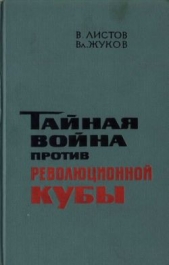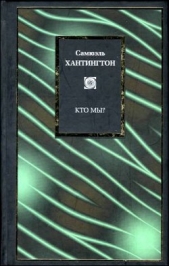Конституция США

Конституция США читать книгу онлайн
Конституция США – сравнительно краткий документ. В ней содержится приблизительно 7 тыс. слов. Она включает три компонента:
1) Преамбула, которая не признается судами и американской доктриной за составную часть закона, а рассматривается только с точки зрения источника, от которого она исходит, и целей, ради которых она выработана.
2) Семь статей, обозначенных римскими цифрами, занимающих иногда до нескольких страниц. Большинство статей делятся на разделы. Статьи главным образом определяют структуру органов государственной власти и регулируют их взаимоотношения, построенные на принципе сдержек и противовесов, т.е. распределяет компетенцию на федеральном уровне (статьи I–III), между союзом и штатами (статьи I и IV); устанавливают порядок изменения самого основного закона (статья V); содержат разноплановые положения в статье VI, часть из которых утратила силу (о признании США доконституционных долгов), а другие, наоборот, приобрели особое значение (нормы о соотношении внутреннего и международного права). Статья VII говорит о вступлении в силу самой конституции. Если характеризовать текст, содержащийся в статьях, то можно отметить, что он на первый взгляд кажется простым, логичным, сжатым и небольшим по объему, хотя при более внимательном рассмотрении в нем много нечеткого, неконкретного и противоречивого. Он изобилует общими выражениями, отсутствуют положения о важнейших институтах политической и государственной власти – о конституционном контроле, политических партиях, исполнительном аппарате, поверхностно характеризуется порядок избрания высших должностных лиц и органов, парламентская процедура.
3) 27 поправок, последняя из которых была принята в 1992 году. Поправки призваны пополнять содержащиеся в Конституции пробелы. Так, первые 10 поправок, носящие название Билль о правах, закрепляют свободу вероисповедания, свободу слова, печати, право обращения с петициями к правительству, право ношения оружия, неприкосновенность жилища и личности, право собственности, право на скорый и публичный суд, запрещение вторичного обвинения по одному и тому же делу и избирательное право. К настоящему времени некоторые поправки изменили положения предыдущих поправок, которые в свою очередь модифицировали первоначальный текст (например, последовательное преобразование и уточнение порядка избрания и замещения должностей президента и вице-президента, установленного в ст. II и поправках XII, XX и XXV). Все принятые поправки дописываются к основному тексту, а отмененный текст не устраняется, что затрудняет понимание.
Конституция США относится к жестким конституциям. Поправки к ней могут быть приняты 2/3 членов обеих палат высшего законодательного органа – Конгресса – либо специальным конвентом, созванным по инициативе 2/3 штатов (случаев такого созыва не было). Они подлежат ратификации (утверждению) законодательными собраниями 3/4 штатов либо 3/4 конвента штатов, созванных по решению федерального конгресса (ст. V).
Конституционный контроль осуществляется общими судами, а окончательное решение по федеральным актам принимает Верховный суд США, по актам штатов – обычно верховные суды штатов, но и в последнем случае по жалобе стороны (если эта жалоба пройдет необходимые судебные инстанции) верховный суд США может принять окончательное решение.
Внимание! Книга может содержать контент только для совершеннолетних. Для несовершеннолетних чтение данного контента СТРОГО ЗАПРЕЩЕНО! Если в книге присутствует наличие пропаганды ЛГБТ и другого, запрещенного контента - просьба написать на почту [email protected] для удаления материала
Amendment XIII
Abolition of Slavery (1865)
Section 1
Neither slavery nor involuntary servitude, except as a punishment for crime whereof the party shall have been duly convicted, shall exist within the United States, or any place subject to their jurisdiction.
Section 2
Congress shall have power to enforce this article by appropriate legislation.
Amendment XIV
Privileges and Immunities, Due Process, Equal Protection, Apportionment of Representatives, Civil War Disqualification and Debt (1868)
Section 1
All persons born or naturalized in the United States, and subject to the jurisdiction thereof, are citizens of the United States and of the state wherein they reside. No state shall make or enforce any law which shall abridge the privileges or immunities of citizens of the United States; nor shall any state deprive any person of life, liberty, or property, without due process of law; nor deny to any person within its jurisdiction the equal protection of the laws.
Section 2
Representatives shall be apportioned among the several states according to their respective numbers, counting the whole number of persons in each state, excluding Indians not taxed. But when the right to vote at any election for the choice of electors for President and Vice President of the United States, Representatives in Congress, the executive and judicial officers of a state, or the members of the legislature thereof, is denied to any of the male inhabitants of such state, being twenty-one years of age, and citizens of the United States, or in any way abridged, except for participation in rebellion, or other crime, the basis of representation therein shall be reduced in the proportion which the number of such male citizens shall bear to the whole number of male citizens twenty-one years of age in such state.
Section 3
No person shall be a Senator or Representative in Congress, or elector of President and Vice President, or hold any office, civil or military, under the United States, or under any state, who, having previously taken an oath, as a member of Congress, or as an officer of the United States, or as a member of any state legislature, or as an executive or judicial officer of any state, to support the Constitution of the United States, shall have engaged in insurrection or rebellion against the same, or given aid or comfort to the enemies thereof. But Congress may by a vote of two-thirds of each House, remove such disability.
Section 4
The validity of the public debt of the United States, authorized by law, including debts incurred for payment of pensions and bounties for services in suppressing insurrection or rebellion, shall not be questioned. But neither the United States nor any state shall assume or pay any debt or obligation incurred in aid of insurrection or rebellion against the United States, or any claim for the loss or emancipation of any slave; but all such debts, obligations and claims shall be held illegal and void.
Section 5
The Congress shall have power to enforce, by appropriate legislation, the provisions of this article.
Amendment XV
Rights Not to Be Denied on Account of Race (1870)
Section 1
The right of citizens of the United States to vote shall not be denied or abridged by the United States or by any state on account of race, color, or previous condition of servitude.
Section 2
The Congress shall have power to enforce this article by appropriate legislation.
Amendment XVI
Income Tax (1913)
The Congress shall have power to lay and collect taxes on incomes, from whatever source derived, without apportionment among the several states, and without regard to any census or enumeration.
Amendment XVII
Election of Senators (1913)
The Senate of the United States shall be composed of two Senators from each state, elected by the people thereof, for six years; and each Senator shall have one vote. The electors in each state shall have the qualifications requisite for electors of the most numerous branch of the state legislatures.
When vacancies happen in the representation of any state in the Senate, the executive authority of such state shall issue writs of election to fill such vacancies: Provided, that the legislature of any state may empower the executive thereof to make temporary appointments until the people fill the vacancies by election as the legislature may direct.
This amendment shall not be so construed as to affect the election or term of any Senator chosen before it becomes valid as part of the Constitution.
Amendment XVIII
Prohibition (1919)
Section 1
After one year from the ratification of this article the manufacture, sale, or transportation of intoxicating liquors within, the importation thereof into, or the exportation thereof from the United States and all territory subject to the jurisdiction thereof for beverage purposes is hereby prohibited.
Section 2
The Congress and the several states shall have concurrent power to enforce this article by appropriate legislation.
Section 3
This article shall be inoperative unless it shall have been ratified as an amendment to the Constitution by the legislatures of the several states, as provided in the Constitution, within seven years from the date of the submission hereof to the states by the Congress.
Amendment XIX
Women's Right to Vote (1920)
The right of citizens of the United States to vote shall not be denied or abridged by the United States or by any state on account of sex.
Congress shall have power to enforce this article by appropriate legislation.
Amendment XX
Presidential Term and Succession (1933)
Section 1
The terms of the President and Vice President shall end at noon on the 20th day of January, and the terms of Senators and Representatives at noon on the 3d day of January, of the years in which such terms would have ended if this article had not been ratified; and the terms of their successors shall then begin.


























